LATUR
Markets
Last updated on 22 July 2025. Help us improve the information on this page by clicking on suggest edits or writing to us.
APMC, Latur
The agricultural produce market of Latur (or the APMC) is close to the Ganj Golai market. A daily auction takes place where each of the produce (grains, jaggery, fruits and vegetables) have a fixed time. Items are bought from the APMC by wholesalers, who then sell them to retailers.
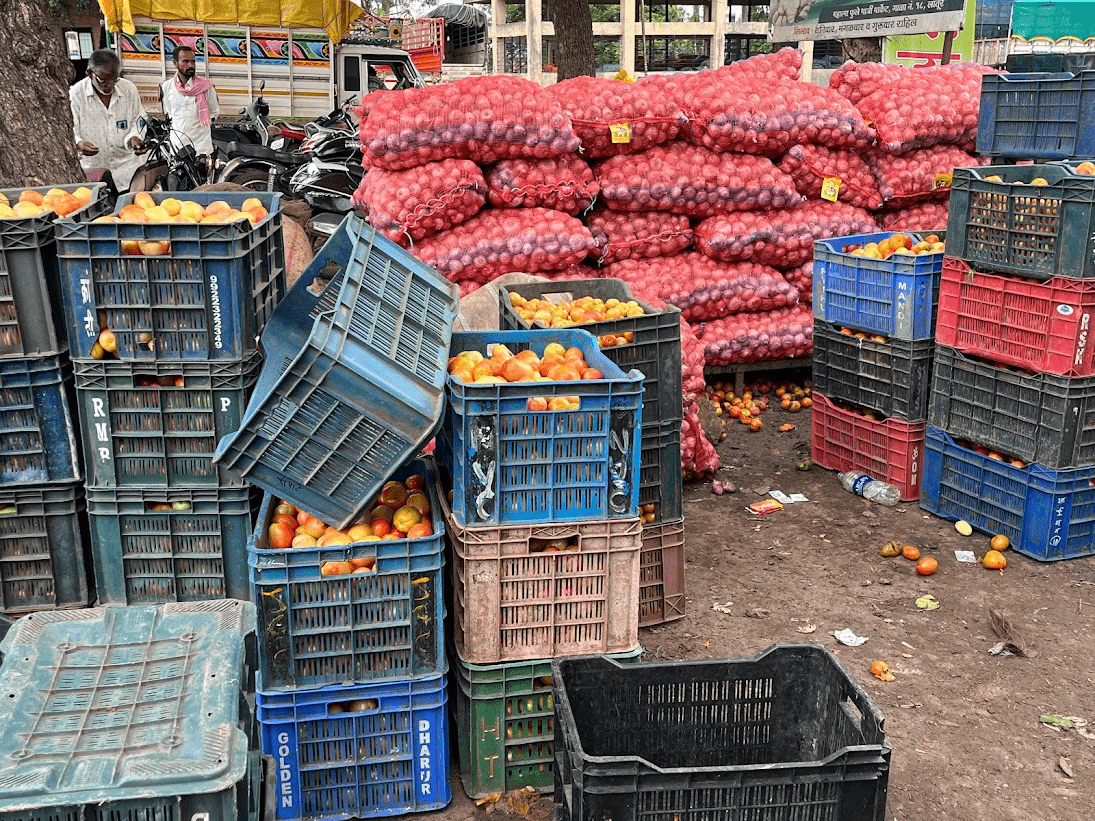
Ganj Golai Market
Ganj Golai Market is a major trading center in Latur, offering a diverse range of goods, including spices, meat, metals, and gold. The market is structured into 14 lanes, each specializing in specific products. At the center, where all lanes converge, stands a circular structure housing the Jagdamba (Golai Devi) Mandir, which likely influenced the market’s name. Previously known as Azam Ganj Golai, it remains an important commercial hub in the region. Some of the lanes in the market are:
Saraf Lane
Saraf Lane, commonly known as Saraf Galli, is lined with jewelry shops offering a variety of ornaments ranging from affordable to high-end designs.
Lokhand Lane
Lokhand Lane specializes in metal products, including items made from steel, brass, iron, copper, and aluminum. Vendors here sell rat traps, baking trays, fan clips, kitchen utensils, nuts, bolts, tools, and other metal hardware. Many products are priced based on weight and craftsmanship. Jaggery storage buckets and molds are also commonly found in this lane.
Kapda Lane
Kapda Lane is dedicated to clothing and textiles, offering a wide selection of socks, school uniforms, children’s wear, cut pieces, sarees, latkans, blouses, and suit pieces. The presence of numerous tailoring shops ensures customers can get custom fittings for their purchases.
Scrap Market Lane
The Scrap Market Lane consists entirely of shops selling second-hand and scrap materials, a rare sight in many Indian cities today. Iron and other metals from these shops are often repurposed to create new tools and items. The Ghisadi community, known for metalworking, buys scrap iron from this market to craft various tools. The market reflects a repair culture that still exists in Latur, though it is gradually fading in larger cities.
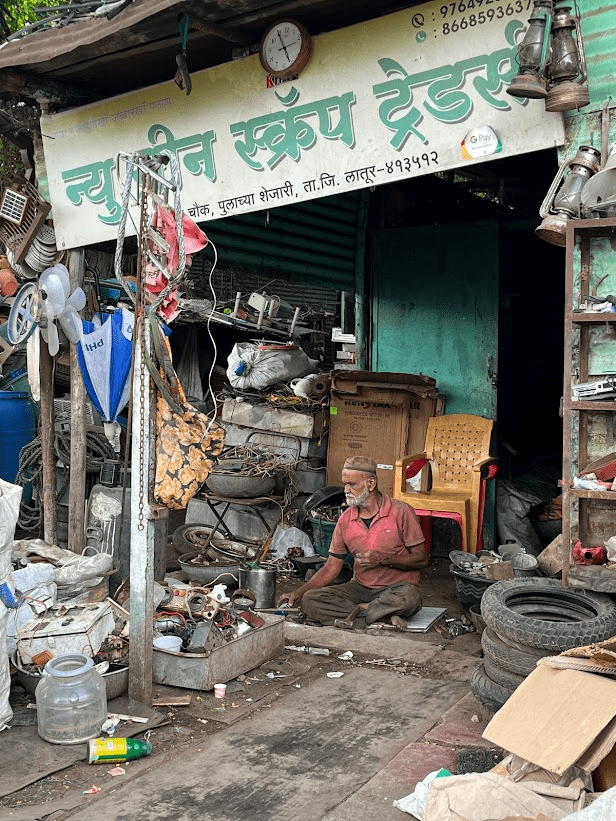
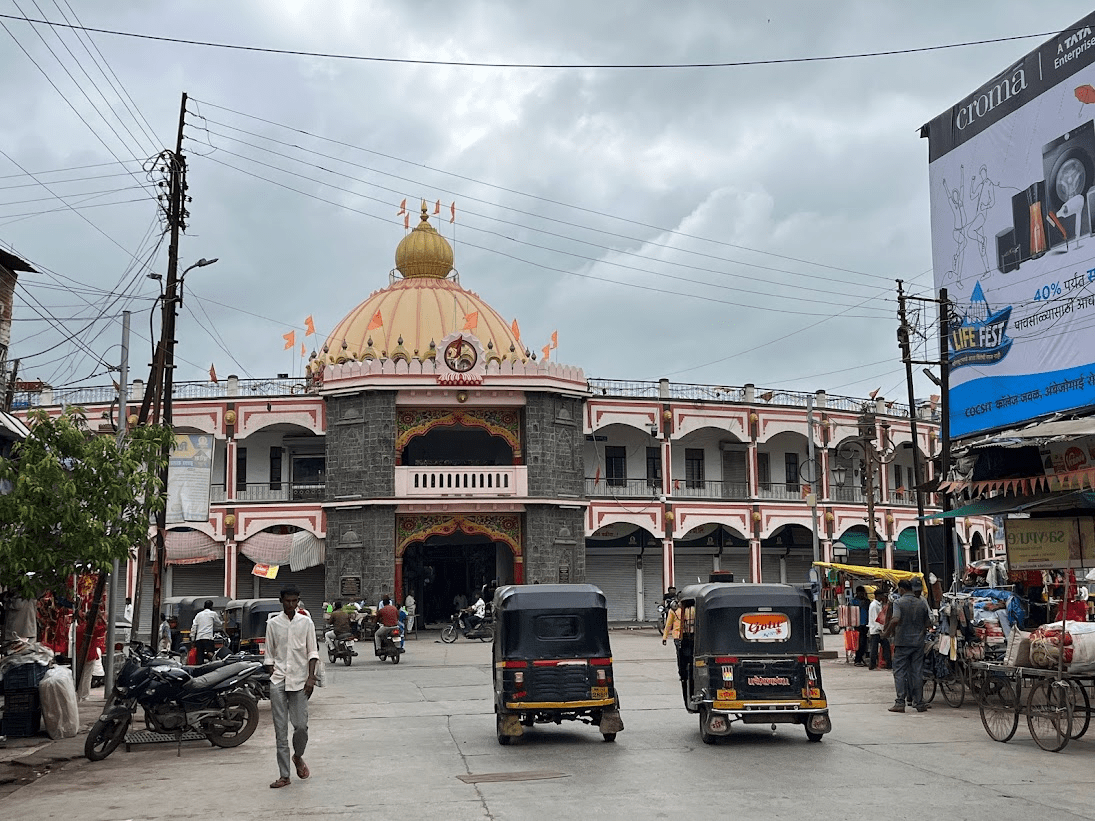
Mahisachi Bazaar
The livestock market in Latur city is held every Saturday morning, while similar markets take place in large villages across the district on a rotational basis throughout the week. Farmers and traders from Latur city and surrounding talukas gather to buy and sell cows, goats, buffaloes, and chickens.
Prices vary, with cheaper cows selling for under ₹40,000, while high-quality breeds, often identified by their curved horns, can cost over a lakh per animal. In addition to livestock, the market also sells fodder and essential accessories for animal care.
The market operates on a large open ground, providing ample space for displaying livestock and price negotiations. Mornings are particularly busy, with buffaloes, goats, and cows arriving in tractors, creating a lively trading atmosphere.
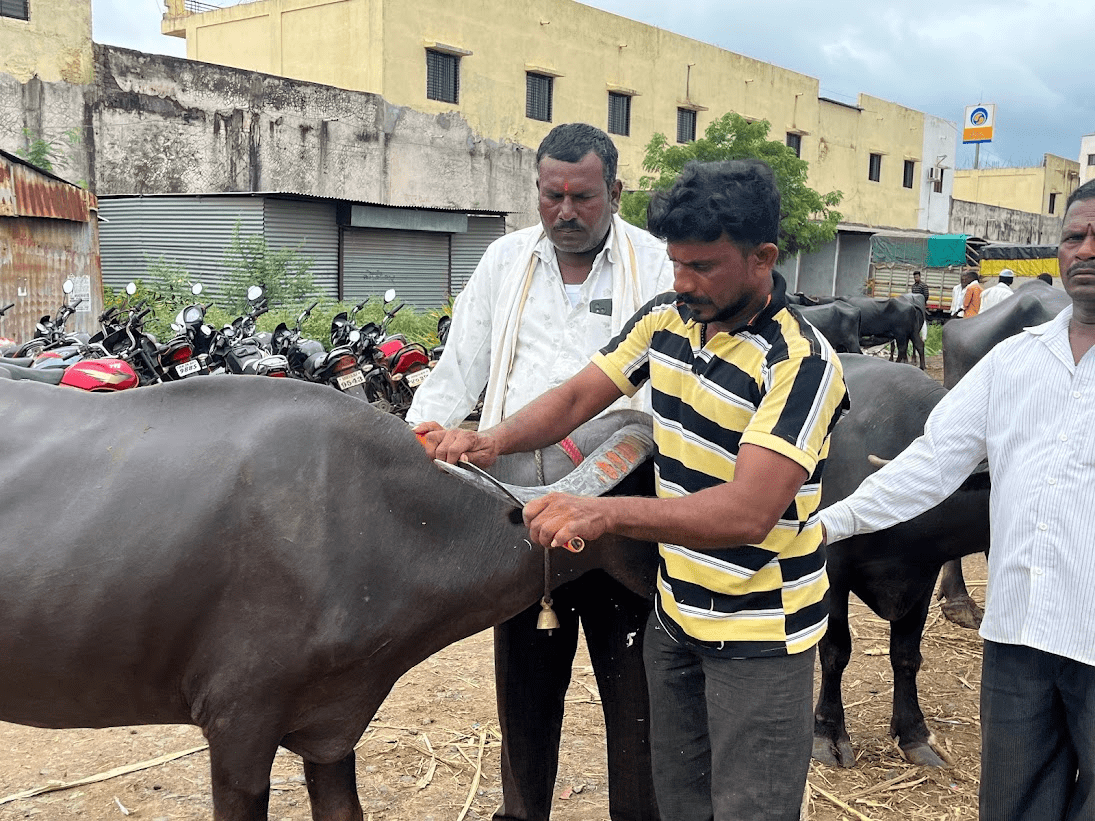
Tamata Market, Vadwal Jaanwal, Chakur
Chakur has a large number of tomato plantations, and therefore a big wholesale tomato market. The area is filled with crates filled with juicy red tomatoes that are ready to be sent in trucks to places such as Yavatmal, Pune, Mumbai and Latur. Next to the tomato farms are ‘depots’ where trucks come to collect the crates and take them to wholesale markets in the nearby districts. Tomatoes are sown in June and harvested in August- September.
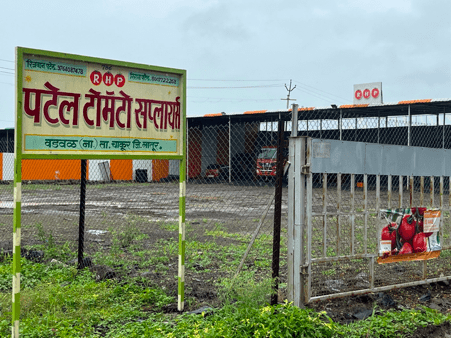
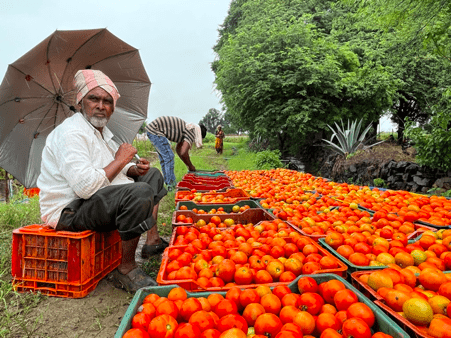
Last updated on 22 July 2025. Help us improve the information on this page by clicking on suggest edits or writing to us.